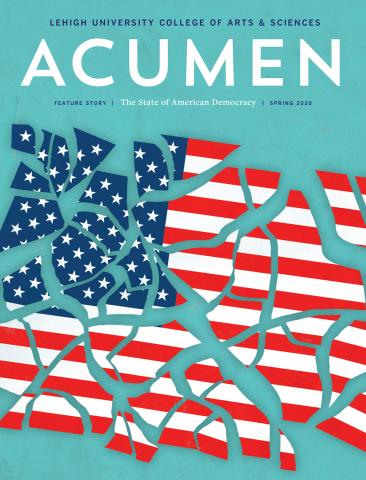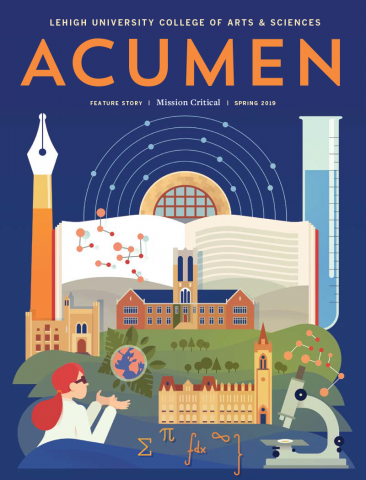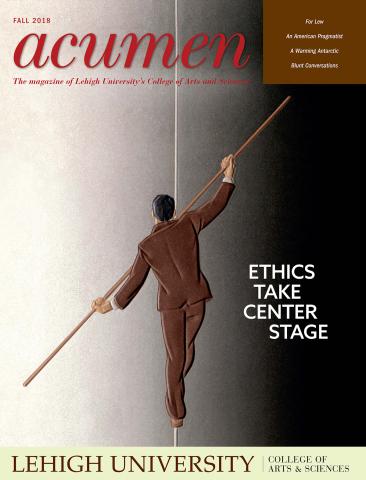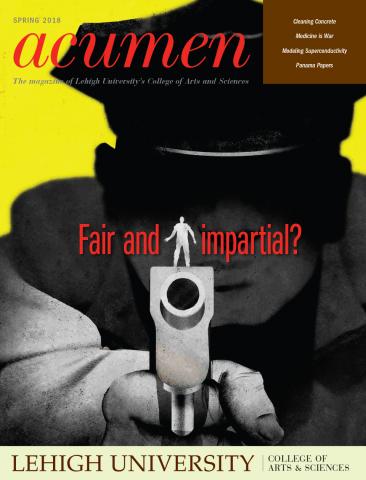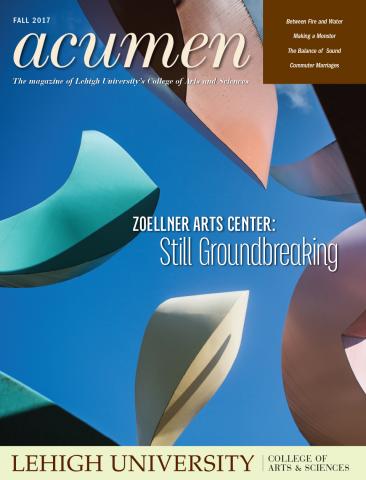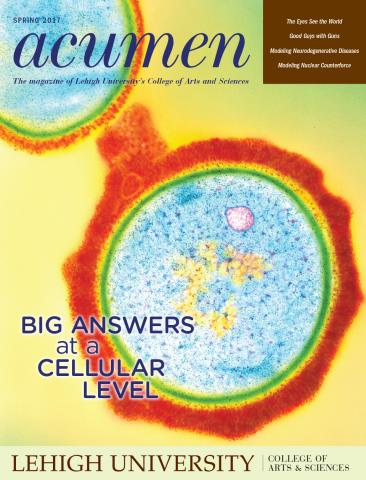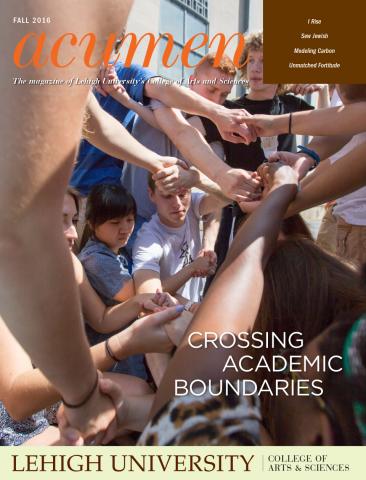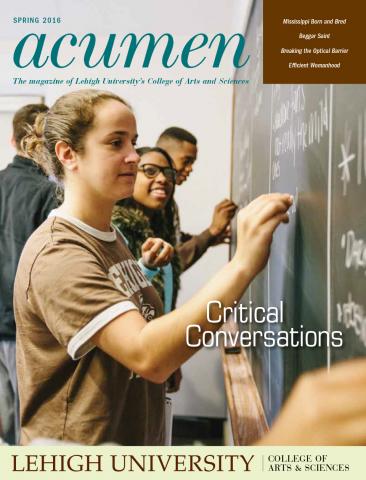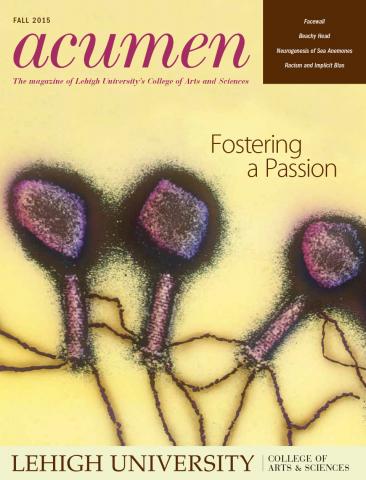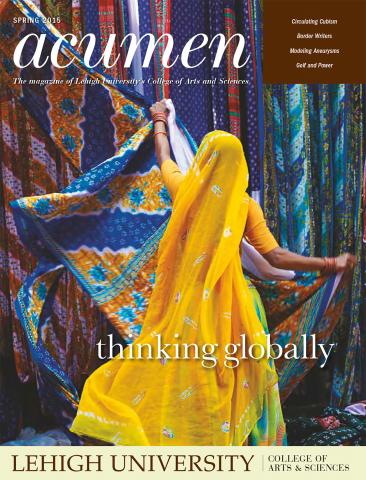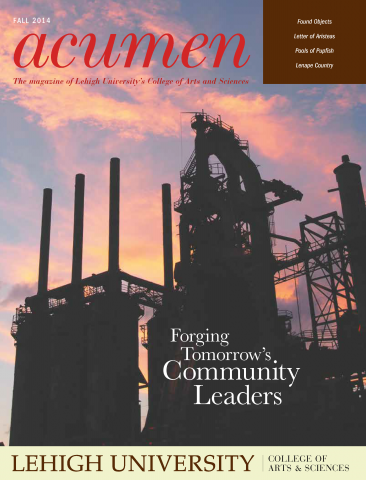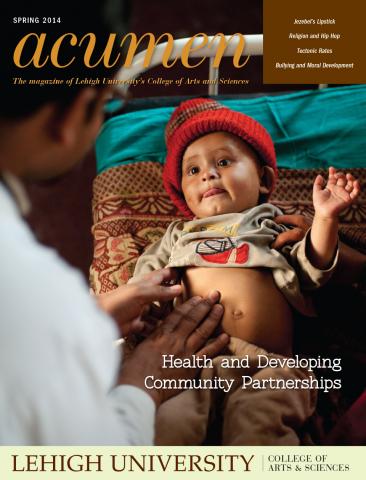
In 1989, Michael Raposa, professor of religion studies and E.W. Fairchild Chair in American Studies, coined the term “theosemiotic” to serve as a label for philosopher Charles S. Peirce’s basic metaphysical perspective on the world, as well as to identify his highly original philosophical methodology for addressing religious questions and understanding religious truth claims. Raposa’s book on theosemiotic is now completed and will be published later this year. Peirce was influenced by the work of Franciscan philosopher John Duns Scotus, and Scotus’s historical legacy is the focus of Raposa’s latest book project.
“Peirce thought Scotus was the most important of the medieval thinkers,” says Raposa. “He called himself a Scotist and embraced an extreme form of scholastic realism. Jim Ross at Penn, who was one of my graduate mentors, introduced me to Duns Scotus. Ross shared Peirce’s admiration of Scotus, in fact, thought he was the smartest of the medieval philosophers, with an IQ—if we could measure it—that would be off the charts. So my own interest in Scotus was sparked by Ross, then intensified by more than 30 years of thinking and writing about Charles Peirce. Many other modern philosophers, like Gilles Deleuze, Martin Heidegger, Edith Stein and Hannah Arendt were also influenced by Scotus, as was the poet Gerard Manley Hopkins.”
Scotus’s thought is distinctive in a number of important ways. In contrast to the most well-known and influential of medieval thinkers, Thomas Aquinas, Scotus argued that the concept of “being” is univocal instead of analogical. This means that, although God exists in a way completely different from God’s creatures (because God is infinite being), nevertheless, there must be some sense in which the word “being,” applied both to God and creatures, means the same thing. Also against Aquinas, Scotus insisted that the human will has primacy over human reason, rather than the reverse. Moreover, by an act of God’s loving will persons are established in their uniqueness (what Scotus called their “haecceity”), not individuated by the matter that constitutes them (Aquinas’s view). Finally, Scotus was unique among medieval thinkers in conceiving of theology as a “practical” rather than a theoretical or a speculative discipline. The “habit” of theology is practical, Scotus argued, and its purpose is to help us understand how to love God more perfectly. On issues less philosophical, Scotus is well known for his devotion to the Virgin Mary, as well as for his contention that, even if human beings had never sinned, God would still have become human, not to suffer and die in order to save humanity, but in order to manifest God’s great beauty.
“My background is in modern western religious thought and I would never pretend to be a medievalist,” Raposa admits. “In addition to my interest in modern thinkers who were influenced by Duns Scotus, I am concerned about the persistence of a narrative formulated in the 1990s by some conservative theologians. The story they tell identifies Scotus as a turning point, marking the ‘fall’ into modernity. Scotus is for them the source of many modern problems, not only in philosophy and theology but in politics and society. I want to tell a different story, one that makes Scotus a hero rather than a villain. But my new book is not really about Scotus himself. It is about modern forms of Scotism. I think that there is a lot of good news to tell.”



















